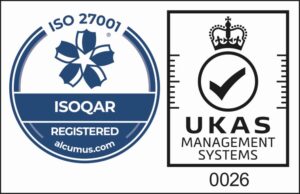IT MSPs and Help Desk Support
Highlighting the benefits of MSPs in providing comprehensive help desk support, including ticket management, end-user assistance, and troubleshooting.
In today’s technology-driven business environment, organizations heavily rely on efficient IT systems and user support to ensure uninterrupted operations. Help desk support plays a critical role in addressing end-user issues and resolving technical challenges. IT Managed Service Providers (MSPs) offer comprehensive help desk services to businesses, providing numerous benefits. Let’s explore how MSPs deliver exceptional help desk support:
Centralized Ticket Management
MSPs employ robust ticket management systems to streamline the process of logging and tracking user requests. This centralized approach ensures that no support ticket goes unnoticed or unresolved. Each request is assigned a unique ticket number, enabling efficient tracking, escalation, and prioritization based on urgency and impact on business operations.
24/7 Availability
MSPs offer round-the-clock help desk support, ensuring that users can access assistance at any time, including after-hours, weekends, and holidays. This availability minimizes productivity disruptions and ensures prompt resolution of critical issues, regardless of the time of day.
Technical Expertise
MSPs maintain a team of skilled IT professionals with diverse expertise. They possess extensive knowledge of various hardware, software, networking, and cloud technologies. MSP help desk personnel are well-versed in troubleshooting techniques and possess the necessary certifications to address a wide range of technical issues.
End-User Assistance
MSP help desk support extends beyond technical problem-solving. They provide end-user assistance, offering guidance and training on how to effectively use hardware, software applications, and IT systems. MSPs aim to empower end-users by enhancing their IT proficiency, resulting in increased productivity and reduced reliance on external support.
Rapid Issue Resolution
MSPs prioritize quick issue resolution to minimize downtime and ensure uninterrupted business operations. They utilize remote support tools to connect directly to end-users’ devices, troubleshoot problems remotely, and provide prompt solutions. By resolving issues efficiently, MSPs help businesses maintain productivity and reduce the impact of technical disruptions.
Escalation and Collaboration
Complex issues often require escalated support and collaboration between multiple IT teams. MSPs act as a liaison between the help desk and other specialized technical teams, coordinating efforts to address complex problems effectively. They leverage their network of resources and partnerships to engage the right experts and resolve issues promptly.
Service Level Agreements (SLAs)
MSPs establish SLAs with their clients, defining response times, resolution targets, and service quality expectations. These SLAs ensure that businesses receive consistent and reliable help desk support. MSPs are committed to meeting or exceeding the agreed-upon SLAs, providing businesses with peace of mind and predictable service levels.
Continuous Improvement
MSPs employ a continuous improvement approach to enhance help desk operations. They gather user feedback, analyze support metrics, and identify opportunities for process optimization. By continuously refining their help desk services, MSPs ensure ongoing improvement in response times, issue resolution rates, and customer satisfaction.
By leveraging the expertise and resources of MSPs for help desk support, businesses can provide their end-users with efficient, reliable, and comprehensive assistance. MSPs enable businesses to focus on core operations while ensuring that technical issues are promptly addressed, minimizing disruptions, and optimizing user experience. Help desk support from MSPs contributes to enhanced productivity, reduced downtime, and improved overall IT performance within organizations.




